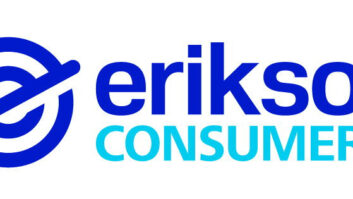NEW YORK — A pair of economic reports released today by the Consumer Electronics Association (CEA) and The Conference Board show that consumer confidence continued its downward slide in January, driven largely by job insecurity.
The CEA report, produced in conjunction with CNET, showed that consumer confidence slipped 1.3 points from December and is down 4.2 points from January 2008.
Not surprisingly, the report also indicated that consumers are less likely to spend money on CE and other technology products, although the decline in their propensity to do so was more modest. According to the CEA-CNET Index of Consumer Technology Expectations (ICTE), consumer confidence in tech devices decreased 1 point from December, representing 2 percent decline year-over-year.
“Consumer confidence continues to decline despite the enthusiasm around the recent shift in administration,” said CNET research director Claudia Haase. “It is clear that consumers continue to worry about job losses, a volatile stock market, and a deepening recession.”
Haase suggested that national attention on CE during the recent International CES may have bolstered the ICTE numbers. “Some of the biggest events in consumer electronics kicked off in January such as the International CES, which fueled consumers’ interest in the hottest tech gadgets,” she said. “But the index decline reflects that while consumers are still shopping for electronics, they are more selective in their purchases.”
Separately, The Conference Board Consumer Confidence Index, based on a representative sample of 5,000 U.S. households, inched slightly lower in January, and continues to hover at historic lows.
“It appears that consumers have begun the New Year with the same degree of pessimism that they exhibited in the final months of 2008,” said Lynn Franco, Conference Board Consumer Research Center director. “The minor change [from December] suggests that economic conditions did not deteriorate significantly further in January but, on the other hand, they did not improve either. Looking ahead, consumers remain quite pessimistic about the state of the economy and about their earnings. And, until we begin to see considerable improvements in the Expectations Index, we can’t say that the worst of times are behind us.”
Consumers’ assessment of overall current conditions remains pessimistic. Those saying business conditions are “bad” increased to 47.9 percent from 45.8 percent, while those saying business conditions are “good” declined to 6.4 percent from 7.7 percent last month, The Conference Board reported.
Consumers’ assessment of the labor market was slightly more positive. Those claiming jobs are “hard to get” edged down to 41.1 percent from 41.5 percent in December, while those stating jobs are “plentiful” edged up to 7.2 percent from 6.5 percent.
Consumers’ short-term outlook remains quite pessimistic, however. Those expecting business conditions to worsen over the next six months decreased slightly to 31.1 percent from 32.9 percent, while those anticipating conditions to improve remained relatively unchanged at 13.3 percent in January, compared to 13.4 percent in December.
The job outlook remains somewhat mixed. The percentage of consumers expecting fewer jobs in the months ahead decreased to 36.7 percent from 40.6 percent, while those expecting more jobs edged down to 9.4 percent from 9.8 percent. The proportion of consumers expecting an increase in their incomes declined to 10.0 percent from 12.7 percent, The Conference Board said.








